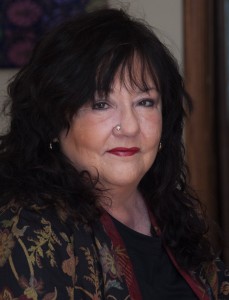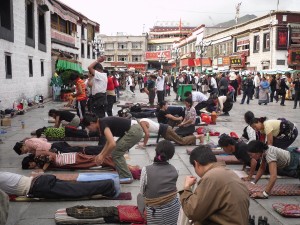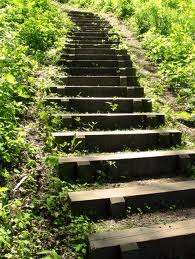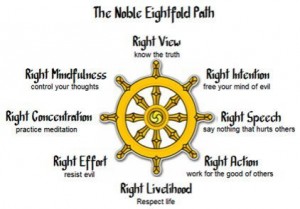
The following is an excerpt from a teaching by Jetsunma Ahkon Lhamo called “Decision Time”
Who are you? Is being busy your guru? Good luck. Good luck. Is being fearful your guru? Is keeping your heart in a place where it doesn’t have to mingle with the cry that I hear from samsara that says help me now, help me? You have to ask yourself because this is the time. Who am I? How many people will suffer at my hand? How many people will slip through my fingers that I did not offer Dharma? These are the questions that you have to ask yourself.
You get what you pay for. That rule is as good in Dharma as it is anywhere else. And if you don’t do the work, the work does you. Each of us has karma and we will experience it. Karma is exacting. There is no way out of it, unless we rely completely and utterly upon the teachings and our teachers as the door of liberation. To delude yourself into thinking that you are practicing that you are Buddhist or that your life has meaning whatsoever, unless you are walking through the door of liberation, is a waste of time. My time and yours.
So I’m asking you, won’t you please let go of your habitual tendencies? Won’t you please let this precious nectar of the Buddhas and bodhisattvas enter your heart and heal you? Won’t you please respond in kind to the cries of sentient beings, because if you are not helping them onto the path of Dharma, not your make up stuff… You can’t have a bunch of people that sit there and talk Dharma to you and think you’ve done your job. Unfortunately, you haven’t practiced that well and you are not the Buddha yet, and you’re not awake. So when you talk about Dharma, it’s just you talking about Dharma. People learn by your practice. They don’t learn by your ego talking about Dharma and saying, ‘I’m so great, I have some Dharma.’ They learn by watching your humility, your qualities, your practice. What is your practice? How do you change week by week, month by month. That’s what people learn That’s when people can learn by your example. But if you yourself are lost in samsara, you have nothing for anybody. Nothing. Your little gifts that you give when you say, ‘Here’s a little Dharma. I know a little Dharma. Try that, I know a little Dharma.’ It’s nothing. It’s a little kabuki dance. You know, you’re playing your little ego thing and they’re playing their little ego thing and everybody’s doing their little ego thing. Real Dharma is not like that. Real Dharma is a method. It is method that must be practiced every day. If you do not rely 100 percent upon your guru, then you are not practicing that path—relying on the teachings, relying on the wisdom, and most of all, relying on the compassion.
Our teachers understand our minds without being inside of them. Did you know that? Teachers can look a certain way, and we can see what you think you’re hiding. In fact, we see it so well that we find that what you’re hiding is running your life. It’s in charge. Whatever you are doing in your mind is in charge.
And I’ll tell you that the Buddhas and the bodhisattvas love you. You know in the East, they talk more about the bodhicitta and it sounds very intellectual. They talk about compassion, and that sounds good. They talk about respect and devotion, and these are all good things. But being a female I can tell you this, I know this from my own experience: You are loved, each and every one of you. Your egos and your stupid stuff, that’s not the part we love the best. We can be patient with that, but we see it killing you. Clinging to life is the very cause of death.
We see you scratching on top of that dirty field and we see the diamonds, and those diamonds are calling to you, ‘Go deeper, go deeper. You can’t see me, but I’m here; and you can’t see me because you are scratching.’ Like beggars under the table of a great feast, we pick up a little crumb, we think, ‘Oh, I got a crumb,’ while the Buddhas and bodhisattvas are saying to us, ‘Come to this feast, eat everything. Have enough for your whole life. Take it all. Take me.’ I’d take everything. And like beggars, we just have a little piece; and we’re so proud. Show it to everybody, got this little piece. And that’s the nature of human beings. Your teachers understand. There’s no question of forgiveness. It’s not like that. There’s no question of guilt. There’s no question at all, actually. It’s simple. The nectar is here and because your teacher has been recognized as the consort of Guru Rinpoche, we’re speaking of the nectar of immortality. That’s the offer. The feast is here, but you have to want to eat, and you have to be willing to chew.
And the love and respect is real. I don’t know of any teacher that purposely gives a student a hard lesson that is so unbearable that they cannot bear it. The teachers hold us as close as they can, like a bond, a bond that is a tether of love; but at the end of that tether of love, if we are not looking to our root gurus with faith and with good mind and proper thinking and proper view, then we will never receive the blessing. It will never come. And instead, what happens is we dance at the end of that tether. And that is what I see. From my heart, I tell you this. You’re dancing at the end of a tether of love, absolutely ensuring that you will never, never come to the feast. It’s decision time. You have to decide who is on the throne: your ego, your fear, your idiot mind, selfishness, delusional thinking. Whatever is on the throne, you’ve got to fix it. No one else can fix it but you. And no one else can come to this table and eat with me this beautiful feast but you.
He who I love beyond all measure lives in you, my teacher, and you betray him every moment. You do not seat him on your throne. He is Guru Rinpoche, teacher of teachers, Buddha of Buddhas; and I tell you this because I have mixed my mind with his.
You are wandering in samsara, my darlings, and I’m asking you, please come back. Please practice the teachings. Please abandon the world. You will do so soon enough. Soon enough we will leave this world and then there will be no choices, only results.
I don’t think there is anybody more qualified than me, forgive me, to tell you that it’s not easy to be a true disciple, that it’s not easy to mix one’s mind with the mind of the guru; it’s not easy to learn. But I can tell you, and nobody is more qualified to tell you this, that when you give up, you win. When you let go, you have it all. And when you stop wiggling, the tether of love binds you so tight, there is nothing else. Please don’t forget the Buddha, the Dharma and the Sangha, and please invite the guru to be seated upon the throne of your heart. I can tell you that there is bliss and happiness in doing so and I can tell you that samsara will always, always be the whore she is and will continue to let you down.
So that’s my teaching for this evening and I’m really thrilled that I had the opportunity to give it to you. And I thank you for listening.
Copyright © Jetsunma Ahkon Norbu Lhamo All rights reserved









